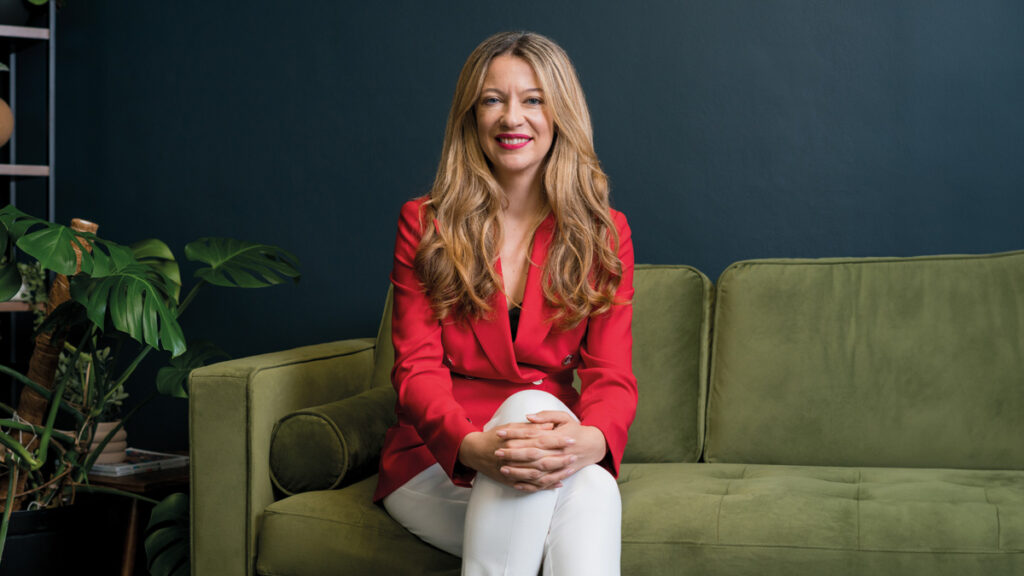Learning to lead: The woman transforming pension management
Romi Savova shares lessons from her career as the CEO of PensionBee for our Learning to lead series

Like many entrepreneurs, Romi Savova was inspired to start her business to solve a problem. In her case, she saw how hard it was to move a pension after changing jobs. In 2015 she founded PensionBee, the pension consolidator and provider, with Jonathan Lister Parsons (now chief technology officer).
“To begin with, it was two of us in a room,” she recalls. Today, PensionBee is a FTSE-listed business with a market capitalisation of £350m, which manages assets of £5bn for 250,000 customers and employs 200 people.
Yet Savova had little experience of either leadership or entrepreneurship. Born in Bulgaria and brought up in South Africa, Savova was educated in the US. At Emory University in Atlanta, Georgia, she started a Model United Nations, which she had run at high school. Likewise, when she left investment bank Morgan Stanley to join Credit Benchmark as a financial data analysis provider, it was her first experience of start-up culture.
“I entered an environment where you have to do everything yourself,” Savova says. “I got a lot of hands-on experience about how to make things happen, whereas in some of the bigger banks, they tend to happen to you.” Leading a company is very different. “You can see the output of what you do. It’s very tangible.”
Skills
“To be able to lead you need to motivate people and look after them.”
Communication
“This is probably the biggest challenge as you grow. In the early days when we were all in one room, you could just stand up and say something. These days, you have to think much more strategically. What we say at 8 am is not going to be heard by our team in New York.
“That means you have to think carefully about how people receive their information, making sure it’s delivered by the right people at the right time so we can continue to maintain the cohesiveness of our culture.
As a leader, what is sometimes so obvious in your head is not necessarily obvious for anyone else. They don’t always see the information that you see and it’s your job to make it clear.

Change
“Lots of things come out of nowhere, whether it’s big market downturns or Covid-19. Responding to change is not easy, but it is necessary.”
Challenges
“They change with time. What seemed big in the early days is quite small now. We want to challenge the legacy pension providers. Some would argue that we are quite well established, but no one had heard of us back in the day. We now have about 55 per cent brand awareness, so things have changed.”
Influences
“I tend to follow what other female CEOs do, although there aren’t that many to follow on the FTSE. If you’re in a leadership position, you need to do things your way and in a method that’s right for you.
“It also has to be genuine and authentic, it’s not like you can’t take a playbook from elsewhere. Across the years you develop the confidence to know what you’re doing is right, based on experience.”
Mentors
“I have a very good relationship with the chair of our board [insurance veteran] Mark Wood. We speak weekly. It’s important to have someone in that position who has done what you have and has all that hindsight and experience.
“I would characterise that relationship as the closest to mentorship. One of the reasons why I think it works is because there isn’t the distance between us. Sometimes with a mentor, they don’t necessarily get it.”
Coaching
“I haven’t been coached, but I went to [Harvard] business school and I certainly got a lot out of it because I was one of the younger students there. One of the things that you do, day in and day out, is case studies.
“Every day you pretend to be the CEO, and because you’re in a class of 100 people and everyone is discussing the same case, you get challenged. They’re designed to be hard situations.”
You can read another Learning to Lead story with NED, author and champion of UK entrepreneurship Sam Smith here and Clare Elford, the chief executive of Clue Software here.



